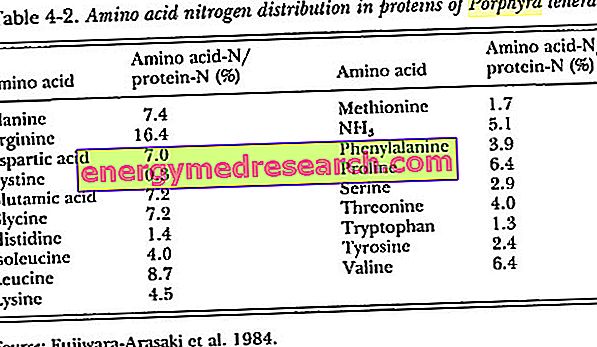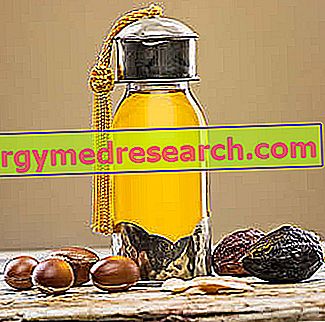What is the Nori Seaweed
What we commonly call Nori, is a red alga belonging to the genus Porphyra (Bangiophyceae), inside which we can recognize approximately 70 species. In particular, the Nori alga refers to some very specific species, among which Porphyra yezoensis and Porphyra tenera stand out, sometimes called Laver (England, USA, Canada), Purple Laver (Great Britain and Ireland), Karengo (New Zealand ), Kim (Korea), Nori (Japan) and Zicai (China).
Cultivation
Nori algae has been cultivated in Japan and the Republic of Korea since the 17th century, when natural stocks were no longer able to meet demand. Today, the Porphyra crops are the subject of one of the largest aquaculture industries in Japan, Korea and China. Due to the significant economic importance, and the benefits to human health, Nori seaweed crops are beginning to extend beyond their original borders. In fact, species of the genus Porphyra grow in most of the intertidal areas of the terrestrial globe, extending also in some subtropical and subarctic regions, as confirmed by historical findings that tell how these algae represented an important source of livelihood for the indigenous populations of Alaska, Canada, Hawaii, New Zealand and part of the British Isles.
Nutritional properties
Nori seaweed is among the most nutritious macroalgae, with a protein content of 25-40%. Rich in iodine (100-300 µg per gram) and low in fats and carbohydrates, nori is known for its richness in minerals and vitamins A (in the form of Beta-Carotene), C, PP (niacin) and folic acid .
It should be noted that the drying processes to which it is subjected significantly reduce the content of thermolabile vitamins, such as C, originally present in a higher concentration than that of oranges. The most important amino acid in quantitative terms is arginine.

| Porphyra abottae: nutritional values per 100 grams fresh weight (Noda 1993, Sahoo 2000, McDermid and Stuerk, 2003) | ||
| Calories | KCal | 279 |
| Protein | g | 24.2 |
| Grassi | g | 1.4 |
| Carbohydrates | g | 58 |
| fibers | g | 25.2 |
| Ashes | g | 16.1 |
| Thiamine | mg | 00:37 |
| Riboflavin | mg | 1.79 |
| Niacin | mg | 6.7 |
| C vitamin | mg | 11.6 |
| Vitamin A (retinol equivalent) | mg | 263 |
| Football | mg | 230 |
| Phosphorus | mg | 474 |
| Sodium | mg | 3300 |
| Potassium | mg | 3140 |
| Magnesium | mg | 623 |
| Copper | mg | 1.7 |
| Znco | mg | 1.7 |
| Iron | mg | 10.5 |
| Manganese | mg | 1.6 |
Also the sodium content, originally high, tends to be reduced in the washing processes from which the Nori algae is produced in sheets. The marked sapidity of the product, in addition to the certainly not negligible content of sodium, is linked to the particular amino acid profile of the Nori seaweed, where three amino acids stand out: alanine, glycine and glutamic acid. The latter, together with sodium, forms monosodium glutamate, a well-known flavor enhancer that stimulates particular taste receptors: umami.
As for the edible part, Nori seaweed is digestible for about 75% of its weight. The remaining percentage is linked to the generous fiber content, especially soluble.
Vitamin B12
Naturally, the nutritional values are rather variable, in relation to the species of origin, to the environmental conditions in which the alga is cultivated and to the industrial processes to which it is subjected.
However, among the characteristic vitamins of the Nori alga, a leading role is covered by vitamin B12, often lacking in the vegetarian's diet. Numerous studies have investigated the real bioavailability of vitamin B12 contained in algae, concluding that its bioavailability is very low in these foods, to say nothing. However, with regards to the specific Nori alga, numerous scientific evidences underline how the vitamin B12 contained in it is not only well absorbable, but also - at least partially - active from a metabolic point of view. Unlike blue algae (cyanobacteria such as spirulina algae and Klamath seaweed), Nori algae therefore appears to represent an excellent source of vitamin B12 for vegan subjects.
Taurine and Betaine
In the Nori alga there are also the amino acid taurine - which contributes, together with the soluble fibers, to reduce the levels of cholesterol in the blood, in addition to regularizing the hepatic activity - and the red fluorescent pigment r-phycoerythrin, used as a marker in the medical diagnostics.
The betaine content helps to reduce the cardiovascular risk associated with high plasma homocysteine levels, typical of those who follow a diet rich in meat and poor in vegetables and seasonal fruit.
Benefits
There are numerous health benefits due to the regular consumption of Nori algae, linked to the abundant presence of nutrients that are friendly to health (including iodine, selenium, beta carotene, antioxidant vitamins, betaine, alginates, iron and omega three fatty acids, in particular EPA). Providing a simple list of these "therapeutic" virtues would still be a stretch: let us remember that the diseases listed below have a multifactorial origin, so that neither a particular diet, nor the consumption of a "simple" food can guarantee protection absolute towards them. However, consumption of Nori seaweed can be useful to patients suffering from hypercholesterolemia, hypertriglyceridemia, pre-diabetes, thrombosis, peptic ulcer, malnutrition, stress and difficulty concentrating, constipation, hypothyroidism due to iodine deficiency, inflammatory diseases, overweight and obesity, as well as playing a possible preventive role in the development of heart disease and some types of cancer, such as colon and breast.



